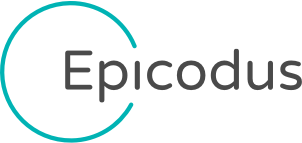By Michael Kaiser-Nyman, Epicodus President
I was chatting with a friend of a friend the other day who mentioned she was thinking about taking Epicodus. Out loud, I said "Oh, that's awesome! I really hope you do it." But in my head, I was worried. What if she wasn't good at programming? What if she didn't do well in the class? What if she didn't get a job afterwards?
I noticed these thoughts bouncing around and then stopped for a moment. Why was I so concerned? We have really high completion and employment rates, and I've had several friends and acquaintances take Epicodus before. What made me worried about this person?
And then I realized that it was because she is a woman.
It was pretty surprising and I felt pretty terrible to catch myself thinking that way, especially since Epicodus has been working hard to encourage more women to get involved in tech. I shared my train of thought with a female friend of mine who's worked in tech for a long time, and I was really surprised when she confided to me, "I catch myself doing that all the time."
Our assumptions about other people based on their gender, race, and other groups characteristics are embedded really deeply in our minds, and often come out without us even realizing. I know I can feel really ashamed when I realize I've had a sexist or racist thought, and often my first instinct is to try to pretend that it didn't happen, or justify it in some way. But recently I've been trying to embrace the idea that those thoughts are going to be there, whether I like it or not. I think it's better that I acknowledge them and correct them, than to try to ignore them while they continue to secretly undermine my attempts to treat people equally.
It can be difficult for many people, myself included, to talk about racism, sexism, and other forms of discrimination, and even more difficult to acknowledge that I can contribute to them, even when I'm trying not to. But the first step towards making something better is admitting you have a problem. And it's comforting for me to know that I'm not the only one with this problem, that even my female friend who's long been involved with promoting diversity in tech has this problem.
So, I'm accidentally sexist, probably more often than I realize. We all probably are. Let's try to acknowledge it to ourselves and each other, try our best not to be, and work hard to make up for it.












